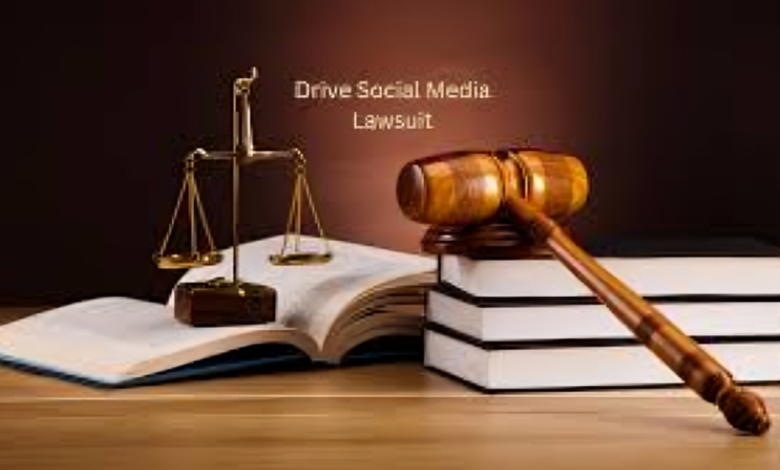Drive Social Media Lawsuit Unveiling the Legal Battle and Its Implications

In the dynamic realm of digital marketing, agencies are pivotal in shaping brands’ online presence. One such agency, Drive Social Media, headquartered in St. Louis, Missouri, has recently come under intense scrutiny due to a lawsuit alleging unethical business practices. This article delves into the intricacies of the Drive Social Media lawsuit, exploring the allegations, legal proceedings, and potential ramifications for the digital marketing industry.
Background of Drive Social Media
Founded in 2012, Drive Social Media rapidly ascended as a prominent digital marketing agency, renowned for its data-driven strategies aimed at enhancing client engagement and revenue. The agency’s service portfolio encompasses social media strategy development, video content creation, comprehensive branding, web development, and customer insights through analytics. By 2022, Drive Social Media boasted a clientele of nearly 2,000 businesses and reported annual revenues exceeding $35 million.
Emergence of the Lawsuit
The lawsuit against Drive Social Media emerged when multiple clients began voicing concerns over the company’s practices. Allegations include overpromising results, delivering subpar outcomes, and engaging in deceptive billing practices. Frustrated by unmet expectations and financial losses, several clients pursued legal action, accusing the agency of breaching contractual obligations and trust.
Key Allegations
The lawsuit encompasses several serious allegations:
1. Misleading Advertising Claims
Clients assert that Drive Social Media guaranteed specific outcomes, such as substantial sales growth and increased web traffic, which were not realized. Some plaintiffs allege that the agency manipulated performance metrics to portray campaigns as more successful than they were, leading to misguided investments based on inflated data.
2. Unethical Billing Practices
Accusations have surfaced regarding Drive Social Media’s billing methods, with claims of charges for undelivered services and undisclosed fees. These practices have resulted in financial strain for clients and have eroded trust in the agency’s financial dealings.
3. Data Misrepresentation
The lawsuit alleges that Drive Social Media manipulated analytics to exaggerate the success of marketing campaigns. Clients contend that the agency provided skewed data, creating a false impression of effectiveness and leading to continued investments under false pretenses.
4. Labor Law Violations
Former employees have accused the agency of violating labor laws, including unpaid wages, denied overtime, and failure to provide mandated breaks. Additionally, allegations of workplace discrimination based on race and gender have surfaced, further complicating the agency’s legal challenges.
Legal Proceedings and Current Status
The lawsuit is currently progressing through the legal system, with both parties engaged in the discovery phase, exchanging evidence and preparing for trial. Drive Social Media has categorically denied all allegations, maintaining that their operations are transparent and adhere to industry standards. Despite attempts at settlement discussions, no resolution has been reached, and the case continues to unfold in the St. Louis court system.
Implications for the Digital Marketing Industry
The outcome of the Drive Social Media lawsuit holds significant implications for the broader digital marketing landscape:
- Enhanced Scrutiny of Marketing Practices: Agencies may face increased examination of their advertising claims and performance metrics, prompting a shift towards greater transparency and accountability.
- Regulatory Reforms: A ruling against Drive Social Media could catalyze the implementation of stricter regulations governing digital marketing practices, ensuring ethical standards are upheld.
- Client-Agency Relationships: The case underscores the necessity for clear communication and realistic expectation setting between agencies and clients to foster trust and prevent disputes.
Conclusion
The Drive Social Media lawsuit serves as a critical reminder of the importance of ethical practices, transparency, and accountability in the digital marketing industry. As the legal proceedings continue, the case’s outcome may redefine industry standards and influence how agencies conduct business, ultimately fostering a more trustworthy environment for clients and marketers alike.
FAQs
Q1: What are the main allegations in the Drive Social Media lawsuit?
A1: The primary allegations include misleading advertising claims, unethical billing practices, data misrepresentation, and labor law violations.
Q2: How has Drive Social Media responded to the lawsuit?
A2: Drive Social Media has denied all allegations, asserting that their operations are transparent and comply with industry standards.
Q3: What could be the potential impact of this lawsuit on the digital marketing industry?
A3: The lawsuit may lead to increased scrutiny of marketing practices, potential regulatory reforms, and a reevaluation of client-agency relationships to ensure ethical conduct and transparency.
Q4: What is the current status of the Drive Social Media lawsuit?
A4: The lawsuit is in the discovery phase, with both parties exchanging evidence and preparing for trial. No settlement has been reached to date.
Q5: Why is the Drive Social Media lawsuit significant?
A5: The lawsuit highlights critical issues regarding ethical practices and transparency in digital marketing, with potential ramifications that could reshape industry standards and client-agency dynamics.
